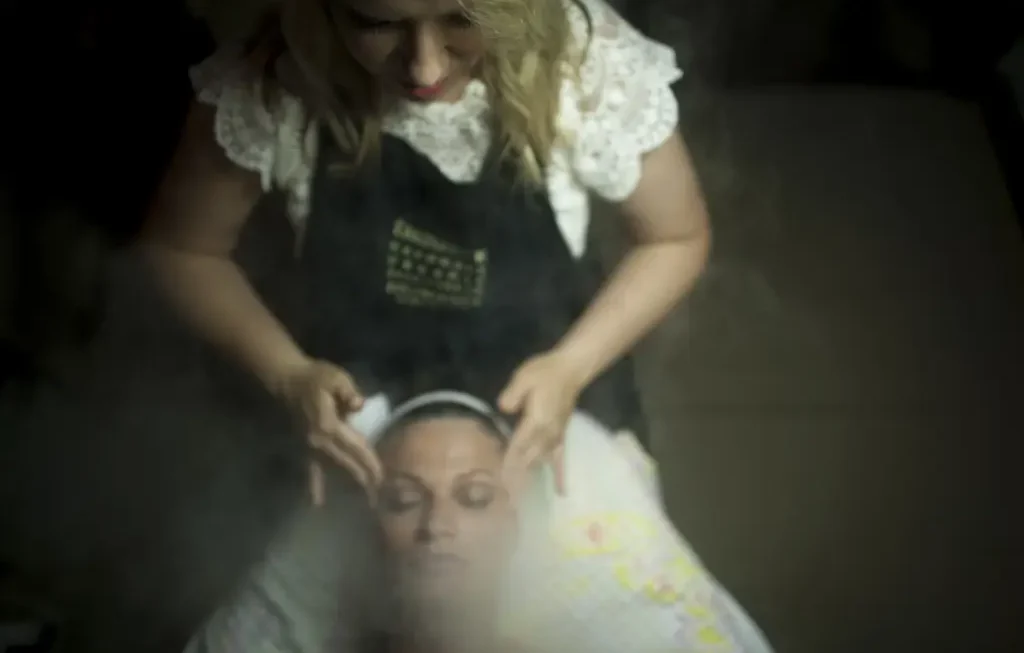
Identifying Common Dental Emergencies
When living in Bradenton, FL, recognizing common dental emergencies can help you respond effectively and seek timely treatment. Understanding the severity and type of dental emergency can significantly impact the outcome.
Toothaches and Their Severity
Toothaches can range from mild discomfort to severe pain, indicating different underlying issues. Immediate attention is often required to prevent further complications.
- Mild Toothache: May not require emergency care but should be monitored.
- Moderate to Severe Toothache: Often indicates a more serious condition and requires prompt dental consultation.
Broken or Chipped Teeth
A broken or chipped tooth can occur from trauma or biting on hard substances. Immediate steps to protect the tooth include:
- Rinse your mouth with warm water.
- Apply a cold compress to reduce swelling.
- Avoid using the damaged tooth for chewing until assessed by a dentist.
Lost Fillings or Crowns
Fillings and crowns can fall out due to decay or physical impact. If this happens, it’s important to take the following steps:
- Keep the fallen piece, if possible.
- Avoid eating on that side of the mouth.
- See a dentist promptly to avoid further damage or infection.
Note: Always keep your dentist’s contact information handy in case of such emergencies.
Immediate Steps to Take During a Dental Emergency
When faced with a dental emergency in Bradenton, it’s crucial to act swiftly and effectively to mitigate pain and prevent further complications. Here are some immediate steps you can take to manage the situation before reaching professional help.
Managing Pain and Swelling
- Take over-the-counter pain relievers such as ibuprofen or acetaminophen, following the dosage instructions carefully.
- Apply a cold compress to the outside of your cheek to reduce swelling and numb the area.
Handling a Knocked-Out Tooth
- Pick up the tooth by the crown (top part), not the root.
- Rinse the tooth gently with milk or saline solution without scrubbing.
- If possible, reinsert the tooth into the socket and hold it in place with a clean cloth.
- If reinsertion isn’t possible, keep the tooth moist by placing it in a container of milk or your saliva until you reach a dentist.
What to Do with Broken Dental Appliances
- Collect all pieces of the broken appliance.
- Store them in a safe place and bring them to your dentist.
- Avoid using the broken appliance until it has been assessed and repaired by a dental professional.
Note: Always prioritize getting to a dentist as soon as possible. Home and initial remedies are temporary and are not substitutes for professional dental care.
Finding Emergency Dental Services in Bradenton
When you’re facing a dental emergency in Bradenton, knowing where to find prompt and reliable care is crucial. Whether it’s a sudden toothache or a more severe issue, the right emergency dental services can make all the difference. Here’s how you can locate emergency dental care in Bradenton, FL.
Local Emergency Dentists
Bradenton hosts a variety of skilled dentists capable of handling dental emergencies. Finding a trusted emergency dentist in Bradenton, FL is essential for immediate and effective treatment. Here are some notable dentists in Bradenton:
- Dental Care of Bradenton – Known for handling emergency dental cases efficiently.
- Bradenton Family Dentistry – Offers services for dental implants Bradenton FL and emergency care.
After-Hours Dental Care
Many dental clinics in Bradenton provide after-hours services to address dental emergencies that occur outside regular business hours. It’s important to know these options ahead of time:
- Evening Dental Clinic Bradenton: Open until 9 PM on weekdays.
- Weekend Dental Services: Available during weekends for urgent dental needs.
Utilizing Dental Hotlines
For immediate assistance and guidance during a dental emergency, dental hotlines can be a valuable resource. They offer advice and can direct you to the nearest emergency dentist Bradenton FL or clinics offering services like dentures Bradenton or teeth whitening Bradenton.
Remember, in a dental emergency, time is of the essence. Quickly locating and reaching out to the right dental services can prevent further complications and ensure faster relief.
Home Remedies for Temporary Relief
When dealing with dental discomfort before you can see a professional, there are several home remedies for temporary relief that can be quite effective. These methods are not substitutes for professional dental care but can provide significant relief from pain and inflammation.
Salt Water Rinses
Salt water rinses are a simple and effective way to cleanse the mouth and alleviate pain. They can reduce swelling and kill harmful bacteria. To prepare a salt water rinse:
- Mix 1/2 teaspoon of salt into 8 ounces of warm water.
- Swish the solution around your mouth for 30 seconds.
- Spit the solution out — do not swallow.
Cold Compresses
Applying a cold compress can help reduce swelling and numb the area, providing relief from pain. For effective use:
- Apply a cold compress to the affected area for 15 minutes.
- Remove for 15 minutes before reapplying.
- Repeat as necessary.
Natural Pain Relievers
Certain natural ingredients can act as pain relievers to help manage discomfort. Here are a few options:
- Clove oil: Apply a small amount to the affected area or a toothache.
- Peppermint tea bags: Cool them down and place on the affected area to soothe gums.
- Garlic: Create a paste and apply it to the affected area for its antibacterial properties.
Note: These remedies are intended for temporary relief. If symptoms persist, consult a dental professional.
When to Visit the Emergency Room
In Bradenton, FL, certain dental emergencies require immediate attention at an emergency room to prevent serious health complications. Understanding when to seek this level of care is crucial for your safety and health.
Signs of Infection
If you experience signs of a dental infection, such as severe pain, swelling, fever, or a foul taste in your mouth, it’s imperative to seek immediate medical attention. Infections can spread rapidly and may lead to more severe health issues if not treated promptly.
Severe Trauma
For injuries involving severe trauma to the mouth or jaw, such as significant cuts, jaw dislocation, or extensive tissue damage, visiting the emergency room is essential. These conditions can affect breathing or swallowing and require professional medical intervention.
Uncontrollable Bleeding
Uncontrollable bleeding after a dental procedure or from an injury is a critical situation. If applying pressure does not stop the bleeding after 10 to 15 minutes, it is crucial to go to the emergency room. This may indicate a more serious underlying issue that needs immediate attention.
Note: Always prioritize visiting an emergency room if you experience any of these conditions, as they can pose serious risks to your health.
Preventive Measures to Avoid Dental Emergencies
Taking preventive measures is crucial in reducing the risk of dental emergencies. By implementing a few key practices, individuals can maintain their oral health and minimize the chances of unexpected dental issues.
Regular Dental Check-Ups
Regular dental check-ups are essential for early detection and prevention of potential dental problems. It is recommended to visit your dentist at least twice a year for routine examinations and cleanings. These visits can help catch issues before they escalate into emergencies.
Protective Gear for Sports
For those involved in sports, wearing protective gear such as mouthguards is vital:
- Prevents teeth damage: Shields against impacts that can crack or knock out teeth.
- Reduces risk of jaw injuries: Helps cushion blows that might otherwise cause jaw fractures.
- Minimizes soft tissue injuries: Protects the lips, gums, and cheeks from cuts and bruises.
Proper Oral Hygiene Practices
Maintaining good oral hygiene is the cornerstone of preventing dental emergencies. Here are some tips to keep your teeth and gums healthy:
- Brush twice a day with fluoride toothpaste.
- Floss daily to remove plaque and food particles between teeth.
- Use an antiseptic mouthwash to kill bacteria and freshen breath.
Note: Consistent oral care routines are your first line of defense against dental emergencies.
Understanding Dental Insurance and Emergency Coverage
Navigating the complexities of dental insurance, especially when it comes to emergency coverage, is crucial for residents in Bradenton. Understanding what your policy entails can save you both time and money in the event of a dental emergency.
What Your Policy Covers
- Annual maximums: The total amount your insurance will pay in one year.
- Deductibles: Out-of-pocket costs before your insurance starts paying.
- Covered procedures: List of dental services covered under your policy, which typically includes emergency services.
Out-of-Network Considerations
When choosing a dental service provider, it’s important to know if they are within your insurance network. Out-of-network charges can be significantly higher, and not all services may be covered.
Tips for Immediate Insurance Claims
- Ensure all your dental records and insurance forms are up to date.
- Contact your insurance provider immediately to report the emergency.
- Keep receipts and detailed records of all treatments and communications.
Note: Always verify coverage specifics directly with your insurance provider to avoid unexpected costs.
Conclusion
In conclusion, handling dental emergencies in Bradenton, FL, requires prompt action and knowledge of the right steps to take. Whether it’s a knocked-out tooth, a severe toothache, or a broken crown, knowing how to respond can significantly affect the outcome. It’s essential to keep the contact information of your dentist handy, understand basic first aid for dental emergencies, and know when to seek immediate professional help. Remember, quick and appropriate actions can save your teeth and prevent further complications. Stay prepared and stay informed to ensure dental health and safety in any emergency situation.


